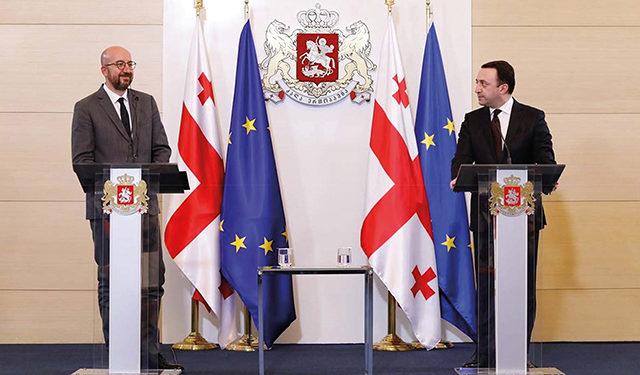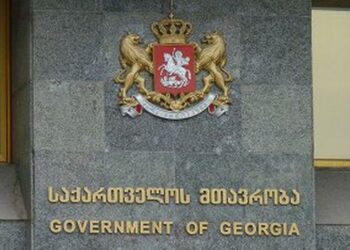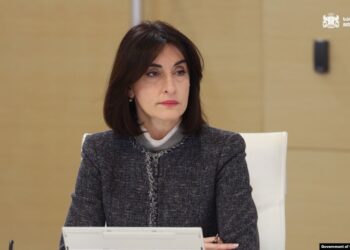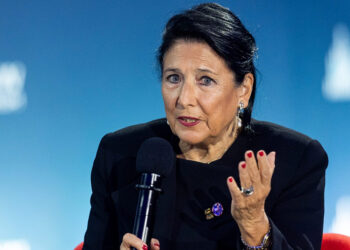For years, Georgia has been seen as the rising star of new NATO and European Union candidates.
Following the 2003 Rose Revolution and the broad sweeping reforms that took place in the following years, the light at the end of the proverbial tunnel has generally been formal integration. This ascension to NATO, the EU, and the litany of other smaller organizations within these two would, by most estimates, have massive benefits for Georgia’s economy and society.
Despite this and the continuing undercurrent of popular support still vibrantly alive throughout the nation, it could be surmised that the senior leadership may not have the same sentiments. More than likely, it is highly doubtful that many would outright oppose integration were it offered the following day. However, the vehemence visible in the citizenry and business community, and the lack-luster effort displayed by much of the ruling party’s leadership has been a source of static with the West.
Following the 2020 elections, more European and American political figures began to make their voices heard on the issue that there seemed to be a disconnect. The disparity between the roadmap to social and political success for Georgia and the decisions being taken by her leadership had given rise for concern. Increasingly, as 2021 progressed, Europe and the United States were forced to apply political pressure arising from mismanagement of government resources, willful judicial negligence, and the refusal by certain party members to come to some form of political reconciliation.
Last summer, representatives of various EU and American diplomatic and lawmaking offices organized a broad agreement document to unite the political community of Georgia. Championed by European Council President Charles Michel, this agreement, often referred to as the “April 19th Agreement,” sought to seek a compromise between the opposition movement and the ruling Georgian Dream party.
However, despite several meetings, the ruling party withdrew at the end of July. While their reasoning was based on the fact at the time that the opposition refused to sign the agreement, their subsequent agreement in September did not see the ruling party resign.
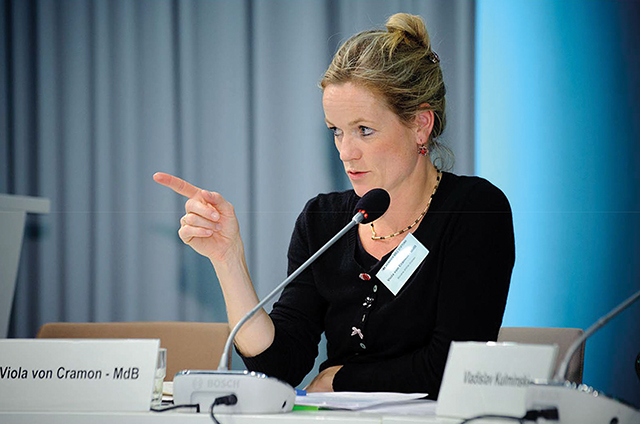
In the wake of this, Georgian Dream decision-makers pushed to quickly appoint judges to the Supreme Court. The process that was allegedly taken to install these officials has been framed as being contradictory to the April 19 Agreement and detrimental to the rule of law in the country. This core concept, the essence of rule of law, has been under attack since the June 20 riots outside Parliament in 2019, as many foreign observers have stated.
Targeting of political rivals and the weaponization of the law enforcement and judicial systems, according to a long list of American, European, and other independent officials, undermines the opportunity for Georgia to grow. In addition, the 2021 legal reforms that were set to be adopted by the nation and their subsequent abandonment caused sparks between Europe and Georgian leaders.
Notable were the statements made by MEP Viola von Cramon and Irakli Garibashvili regarding the EUR 75 million in EU macro-financial assistance that was dependent on these reforms. Garibashvili said the country would decline the loan package due to the growing success of the Georgian economy. Despite evidence to the contrary, he claimed that the growth outweighed the necessity for additional foreign debt. Cramon quickly responded, stating, “This is not the first case when Georgian Dream breaks its promise. Breaking the agreement breaks trust and makes the Georgian Dream a force you cannot trust, which is not credible.”
More statements from EU officials have called into question the true intentions of the ruling party, even going so far as to suggest that a decision must eventually be made. The people and the government will have to come to some decision on their future, as the current leadership is ostracizing the nation from the West. Member of the European Parliament Andrius Kubilius recently stressed this by saying, “All this creates a bad image for Georgia, not only the government- it harms the desire of the Georgian people for European integration.”
In addition, former US Ambassador to Georgia Ian Kelly coined the term “foreign policy by insult” as a way of framing the situation. Senior officials have repeatedly scoffed and brushed off recommendations by American and European leadership regarding the path of Georgia. More recently, Chairman of the Georgian Dream Irakli Kobakhidze lashed out against statements condemning the abolition of the State Inspector’s Service. Seen as a bastion against corruption and unfair practices, this dismissal is largely seen as a sign of reversal in Georgia’s political development.
With all of this contention it is easy to oversee the shift as simply a proverbial bump in the road to EU and NATO integration. However, between the emerging international rift and the national reforms that revert the country back decades, due concern and worry is not misplaced. This sentiment is even more amplified by the obvious fact that seeing this growing issue only serves to increase Putin’s salivating over the South Caucasus.
Both sides must come to some agreement in the short term, primarily aimed at cooling the simmering tension. In the longer term, some form of mechanism to ensure Georgia’s path westward is needed. American and European leaders need to take more action than simple condemnation and creatively written letters, while Georgian leadership needs to commit to genuine transparency to both their people as well as Western leadership. Only with firm commitments to these core principles and a real desire for positive change towards the EU and NATO pillars of standards will Georgia ascend to another golden age.
By Michael Godwin

